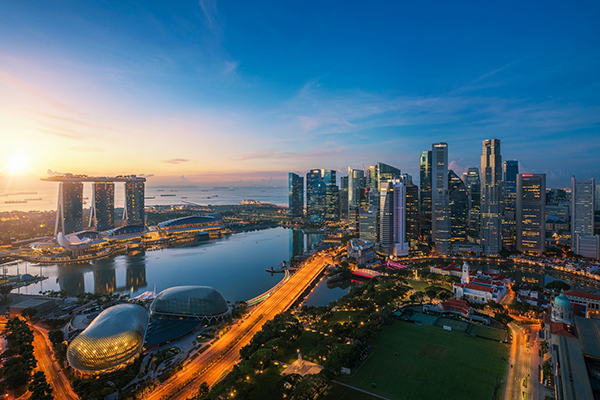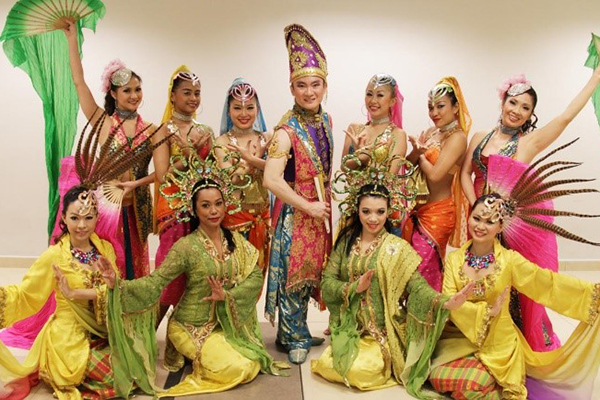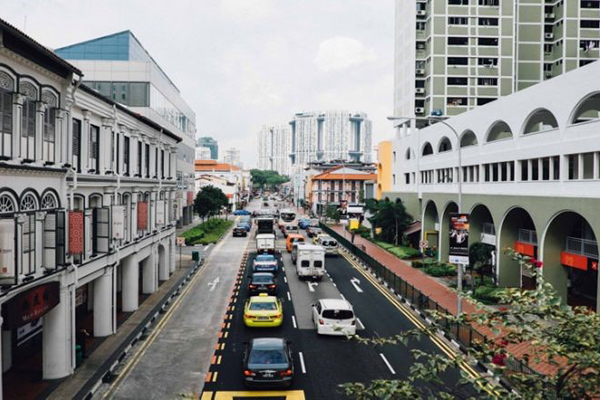Working as an expat in Singapore
Singapore is a hive of energy sector activity, with businesses servicing the offshore Oil & Gas industry, as well as employing workers onto shipyard, construction and engineering projects.
With employment opportunities remaining strong, Singapore continues to attract high numbers of expats. We take a look at what you can expect if you are working as an expat in Singapore, relocating on a contractor or permanent employee basis.
At a glance
Singapore offers a culture of business opportunity, with a high standard of living and the ability to work in a country which predominately speaks English. Here are some quick facts:
- Main language: English (used as the language of business)
- Other languages: Mandarin Chinese, Malay, Tamil
- Religions: Buddhism, Christianity, Islam, Taoism, Hinduism
- Driving: Cars drive on the left
- Currency: Singapore dollar ($S, SGD)
- Local time: GMT +8:00
- Public Holidays: 11
This is a multi-cultural environment with 42% of the population being foreigners, bringing Chinese, Malay, Indian and British influences, and a vibrant expat community.

Right to work in Singapore
Under the Employment Act, expats must have a valid work visa to be able to work in Singapore.
All visitors to Singapore must meet the following entry requirements:
- Valid travel document (minimum validity of 6 months at the time of departure)
- Confirmed onward or return tickets (if applicable)
- Entry facilities, including visas, to the next destination
- Sufficient funds to maintain themselves during their stay in Singapore; and,
- Visa for entry into Singapore (if applicable)
- Yellow Fever Vaccination (if applicable)
Admission is normally refused to visitors holding damaged passports and passports with missing pages, so make sure your passport is intact. At First Recruitment Group we organise both Employment Passes and S Passes.
- Employment Pass (EP): This is the main type of work permit for skilled workers, who must be on a fixed monthly salary of more than S$3,600.
- S Pass: This is for mid-skilled employees who earn a fixed monthly salary of at least S$2,300. These are assessed on an employer’s quota edibility and the applicant’s qualification.
Salaries and Taxes
With a healthy economy and business opportunities growing, Singapore companies need more overseas workers to help support their projects with specialist skills in Oil & Gas, Infrastructure, Technology and Construction. As a result, salaries and contractor pay is lucrative and remains high.
Taxes in Singapore are relatively low by international standards.
The top marginal income tax rate for residents is 22% and only applies to incomes above S$320,000 per year. If you live in Singapore for between 61 and 183 days per year, you are considered a non-resident and will be charged the higher of 15% or the marginal tax rate for your income level.
In addition, you will also have to pay 7% Goods and Service Tax (GST; aka sales tax) on most goods and services while living in Singapore.
Driving in Singapore
To drive a vehicle in Singapore, you must possess a valid Singapore driving license for the class of vehicle that you want to drive. Make sure you convert your international driving license within a year of relocation.

Low crime and corruption
Singapore is ranked the 5th least corrupt country in the world, after implementing reforms and strong law enforcement over the years. Laws are upheld by The Corrupt Practices Investigation Bureau, who enforce long-term jail sentences and huge fines up to S$ 100,000. All crimes, even minor offences are treated with extreme severity, acting as a deterrent to society in general.
Residents feel safe and business deals are straight forward and clear, steering clear of corrupt practices.
Day to day do’s and don’ts
- While travelling, do not carry too much cash or valuables to avoid snatch theft.
- Do not point with your finger - use your hand to gesture.
- Do not spit or litter in public places.
- Do not smoke in any indoor places where the public congregates, which includes multi-purpose halls, pedestrian overhead bridges, covered walkways and link ways, hospital outdoor compounds, and a five-meter perimeter around bus shelters, common areas of residential buildings etc.
- Do not chew chewing gum. This has been banned.
- Always keep your passport with you if your work permit has not been issued.
- Keep your notification letter with you, after the MOM appointment as a proof that your permit is on the way and you’ve the right to work
- Always buckle up when traveling by taxi or car.
- Make sure you look for marked pedestrian lanes before crossing any street. No Jaywalking.
Start you career in Singapore today
Now that you have a better understanding of the benefits of working as an expat in Singapore, it’s time to get the ball rolling.
We are constantly getting new roles for Project Management, Construction, Engineering, Project Services, Subsea, Quality, HSE and Logistics within the Energy and Construction industries.
If you are an expat looking to work in Singapore, search all our current jobs in Singapore here.
Or register your CV with us here and sign up to Job Alerts from Singapore.
